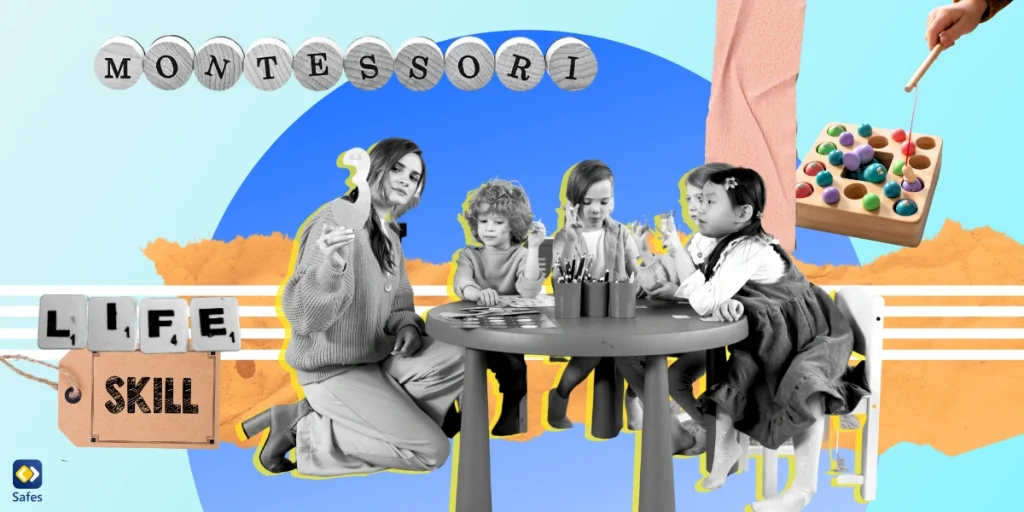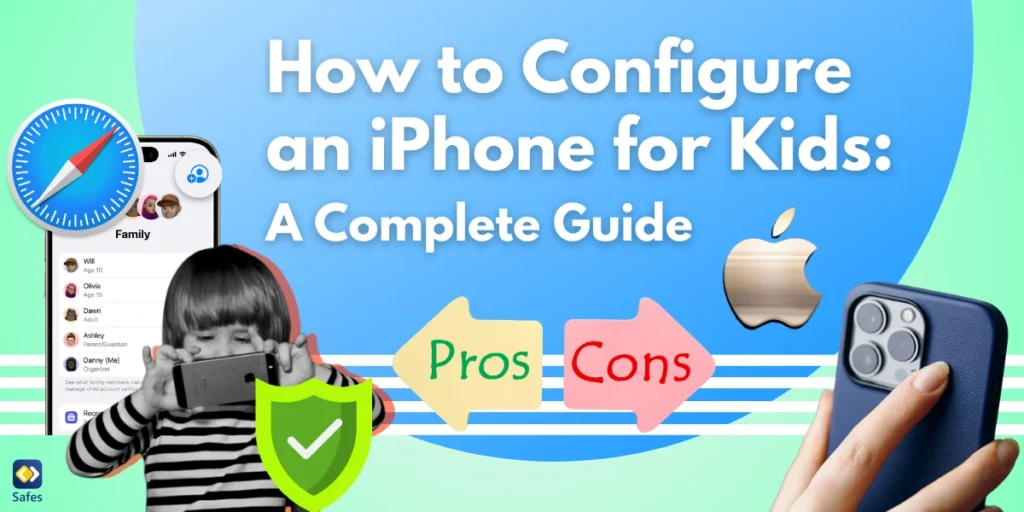Montessori education, founded by Dr. Maria Montessori in the early 1900s, is a child-centered approach that prioritizes self-directed learning, hands-on activities, and collaborative play. It is a philosophy and pedagogy that has gained popularity worldwide due to its emphasis on promoting independence, creativity, and a love of learning in children. This article will explore the benefits of Montessori education, its potential disadvantages, and how to implement it in various school settings.
Download and Start Your Free Trial of the Safes Parental Control App
What Is the Concept of Montessori Education?
Montessori education is an alternative approach to traditional schooling that focuses on each child’s personal needs and development. It is based on the belief that children are naturally curious and have an innate desire to learn. The Montessori method creates an environment that encourages:
- Exploration
- Independence
- Critical thinking
What Is the Main Idea of the Montessori Method?
The Montessori method is characterized by several fundamental principles and techniques that guide the learning process. These include:
Child-Centered Learning: This method places the child at the center of the learning experience. Teachers guide, observe, and support each child’s unique learning path.
Multi-Age Classrooms: Montessori classrooms typically consist of children of different ages, allowing for peer learning and collaboration. This creates a sense of community and encourages older children to mentor and support younger ones.
Hands-On Learning: Montessori education emphasizes hands-on learning through specially designed educational materials. These materials engage the child’s senses and promote independent exploration and discovery.
Sensitive Periods: Montessori recognizes that children go through sensitive periods or periods of intense interest and receptiveness to specific skills or knowledge. Teachers leverage these sensitive periods to introduce new concepts and skills.
Freedom within Limits: Montessori classrooms provide children with independence and autonomy within a structured environment. Children are encouraged to:
- Choose their own activities
- Work at their own pace
- Take responsibility for their learning
Individualized Learning: Montessori education recognizes each child has unique:
- Strengths
- Interests
- Learning styles
Teachers tailor their instruction to meet each student’s abilities and needs.
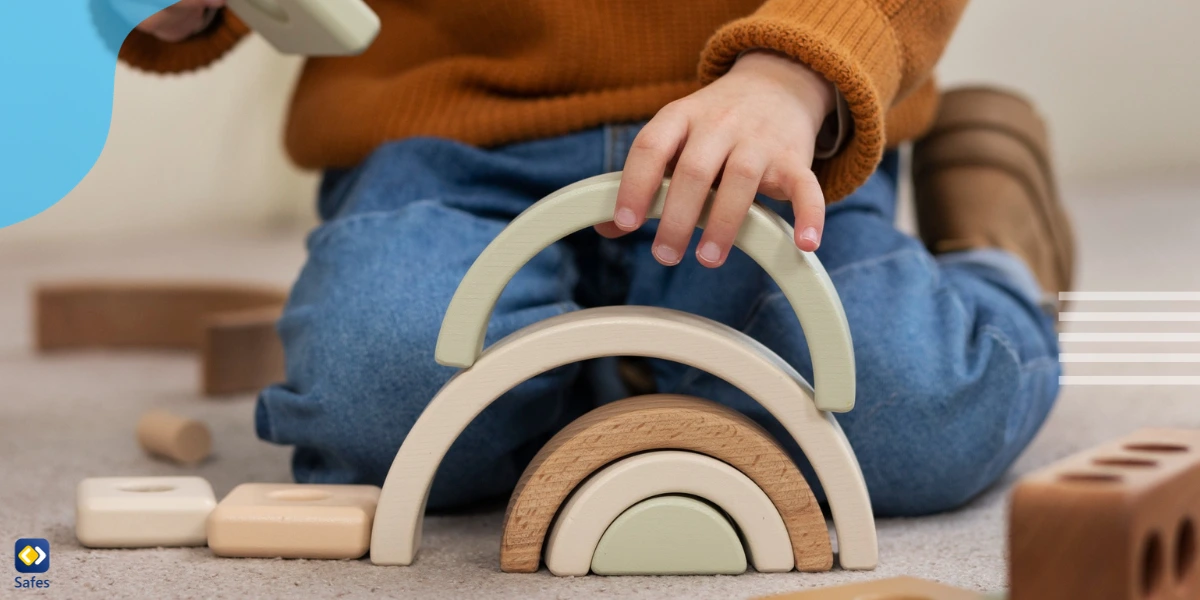
What Are the Benefits of Montessori Method?
In the following, we will discuss some of the key benefits:
Nurturing Independence and Self-Directed Learning
One of the primary benefits of Montessori education is its focus on nurturing independence and self-directed learning. The Montessori classroom environment promotes autonomy and a sense of agency in children. Montessori education encourages a love of learning and self-motivation by allowing children to:
- Choose their own activities
- Work independently
- Follow their interests
Critical Thinking and Problem-Solving
In a Montessori classroom, children are encouraged to:
- Think critically
- Solve problems
- Make decisions independently
The hands-on nature of the learning materials and the freedom to explore and experiment promote the development of these essential skills. Montessori education encourages children to:
- Ask questions
- Seek answers
- Develop analytical and problem-solving abilities
Individualized Instruction and Personalized Learning
Based on Montessori principles, each child has unique:
- Strengths
- Interests
- Learning styles
Teachers tailor their instruction to each child’s needs and allow them to progress at their own pace. This individualized learning approach ensures that children receive the support and challenges they need to reach their full potential.
Social-Emotional Development
Montessori classrooms promote social and emotional development by nurturing a sense of:
- Community
- Cooperation
- Respect
Multi-age classrooms allow children to interact with peers of different ages, promoting:
- Empathy
- Collaboration
- Leadership skills
Through practical life activities and grace and courtesy lessons, Montessori education also emphasizes the development of social skills, emotional intelligence, and self-discipline.
Holistic Development of the Child
Montessori education recognizes children are not just passive recipients of knowledge but active participants in their development. The Montessori curriculum encompasses various areas of learning, including:
- Practical life skills
- Sensory exploration
- Language development
- Mathematics
- Cultural studies
- The arts
This holistic approach to education nurtures the child’s physical, cognitive, social, and emotional development.
Long-Term Love of Learning
One of the most significant benefits of Montessori education is its ability to instill a lifelong love of learning in children. By promoting independence, curiosity, and a sense of accomplishment, Montessori education creates a positive learning experience. Children develop:
- A growth mindset
- A thirst for knowledge
- A desire to explore and understand the world around them
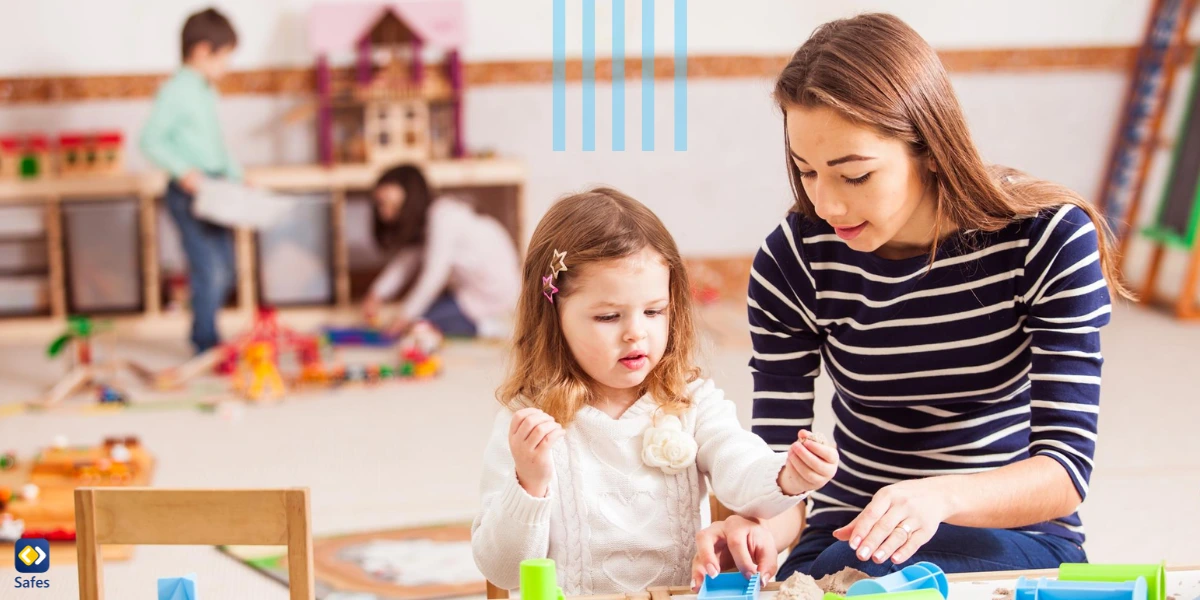
Potential Disadvantages of the Montessori Method of Education
Like any other educational method, the Montessori educational system has its drawbacks:
- Limited availability and higher cost compared to traditional schools.
- Requires trained Montessori teachers who understand the philosophy and methods.
- Some children may struggle with the freedom and responsibility of self-directed learning.
- Limited structure and less emphasis on standardized testing may not align with some educational systems or parental expectations.
Despite these drawbacks, the Montessori educational system outperforms traditional education academically and nonacademically. Currently, about 3,000 private schools and 550 public schools offer Montessori education in the US.
Implementing Montessori Principles in Conventional Schools
While Montessori education is often associated with dedicated Montessori schools, the principles and techniques can be adapted and integrated into conventional schools. Here are some strategies for implementing Montessori principles in traditional educational settings:
Flexible Learning Spaces: Create classroom environments that allow for movement, hands-on exploration, and individualized learning. Incorporate Montessori educational toys and materials that promote independent learning and critical thinking.
Mixed-Age Groupings: Whenever feasible, create opportunities for students of different ages to work together and learn from each other. Foster a sense of community, collaboration, and mentorship within the classroom.
Individualized Instruction: Differentiate instruction to meet students’ unique needs and learning styles. Provide opportunities for self-directed learning and encourage students to take ownership of their education.
Practical Life Skills: Incorporate practical life activities and lessons that promote:
- Independence
- Responsibility
- Social skills
Teach students essential life skills, such as:
- Time management
- Organization
- Self-care
Experiential Learning: Provide hands-on learning experiences that engage the senses and promote critical thinking. Encourage students to explore and discover knowledge through experimentation and inquiry-based learning.
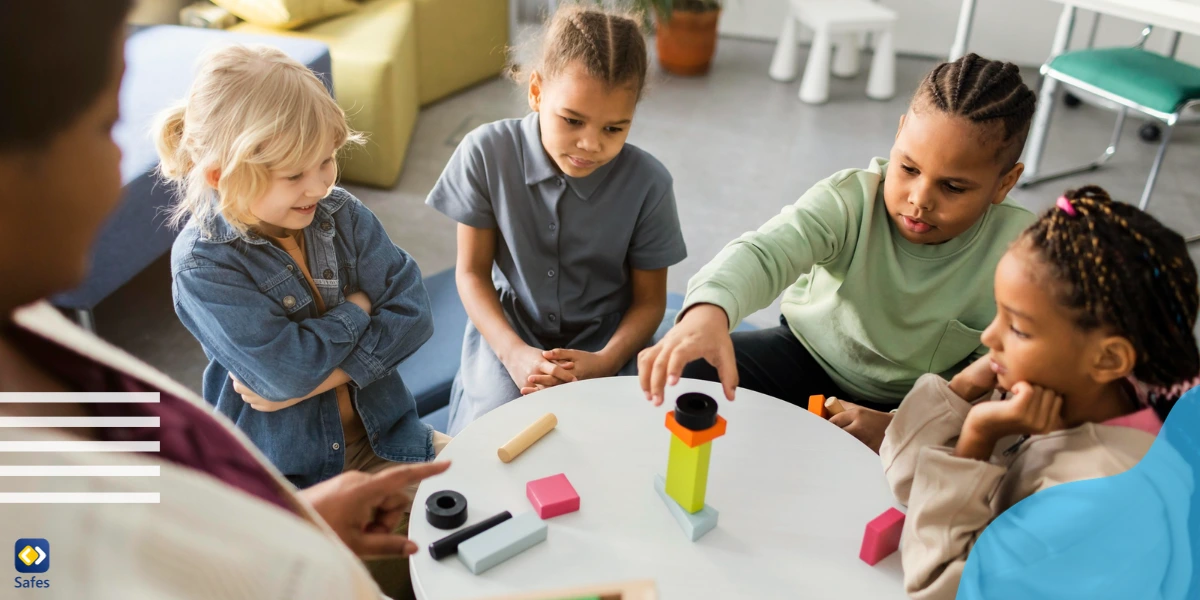
Engaging Parents in Montessori Education
Parents play a crucial role in supporting and reinforcing Montessori principles at home. Here are some strategies for engaging parents in Montessori education:
Parent Education Workshops: Offer workshops and seminars to educate parents about the Montessori philosophy and methods. Provide resources and practical tips for implementing Montessori principles at home.
Open Communication: Foster open and regular communication between teachers and parents. Share insights into the child’s progress, achievements, and areas for growth. Encourage parents to:
- Ask questions
- Share concerns
- Collaborate with teachers
Home Environment: Guide parents on creating a Montessori-inspired home environment that supports the child’s:
- Independence
- Curiosity
- Love of learning
Recommend Montessori educational toys and materials that align with the child’s developmental stage. Parents can give their children Montessori educational toys from infancy. These toys, which are commercially manufactured, can:
- Spark creativity
- Help children make sense of the world around them
- Promote experimentation
- Nurture age-appropriate independence
Parent Involvement: Encourage parents to actively participate in their child’s education by:
- Volunteering in the classroom
- Attending school events
- Supporting the child’s learning at home
- Collaborate with teachers
- Contribute to the school community
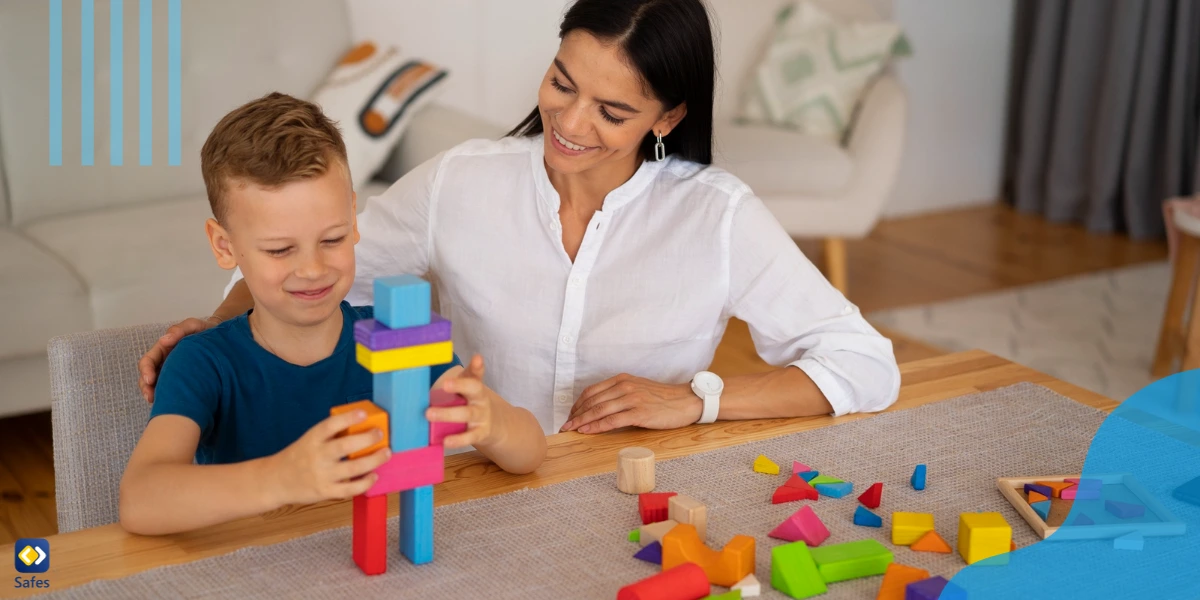
Assessing Success in Montessori Programs
Assessing success in Montessori programs requires a holistic approach beyond traditional academic measures. Here are some ways to evaluate the effectiveness of Montessori education:
Observation and Documentation: Use observation and documentation techniques to track each child’s progress and development. Focus on the child’s:
- Engagement
- Problem-solving abilities
- Social interactions
- Growth in independence
Portfolio Assessment: Maintain portfolios that showcase the child’s work, achievements, and growth over time. Include samples of their artwork, writing, projects, and reflections.
Parent and Teacher Feedback: Seek feedback from parents and teachers regarding the child’s:
- Progress
- Strengths
- Areas for improvement
Regular communication and collaboration between home and school are essential.
Assessment of Key Developmental Milestones: Monitor the child’s attainment of critical developmental milestones, such as:
- Language acquisition
- Fine and gross motor skills
- Social-emotional development
- Cognitive abilities
Long-Term Outcomes: Assess the long-term outcomes of Montessori education exhibited by Montessori graduates by tracking the:
- Academic achievements
- Social-emotional well-being
- Love of learning
Resources for Further Learning and Implementation
If you are interested in learning more about Montessori education and implementing its principles, we recommend these books, workshops, and websites:
Books
- “The Absorbent Mind” by Maria Montessori
- “Montessori: The Science Behind the Genius” by Angeline Stoll Lillard
- “Montessori from the Start” by Paula Polk Lillard and Lynn Lillard Jessen
Workshops and Training
Attend Montessori workshops and training programs offered by reputable organizations such as:
Websites
For valuable information, resources, and support, explore websites such as:
- Montessori.org
- Montessori-pierson.com
- And the ones mentioned earlier
By furthering their knowledge and understanding of Montessori education, educators and parents can create a more enriching and effective learning experience for children.
Benefits of Montessori Education: Conclusion
Montessori education offers numerous benefits, including fostering independence, critical thinking, and a lifelong love of learning. By implementing Montessori principles, both in dedicated Montessori schools and conventional educational settings, educators can create engaging and student-centered learning environments. Engaging parents, assessing success holistically, and utilizing resources for further learning and implementation are key to the successful implementation of Montessori education. By embracing the principles of Montessori education and utilizing tools like Trio Education, you can create a positive and secure learning environment that nurtures the holistic development of children.
Your Child’s Online Safety Starts Here
Every parent today needs a solution to manage screen time and keep their child safe online.
Without the right tools, digital risks and excessive screen time can impact children's well-being. Safes helps parents set healthy boundaries, monitor activity, and protect kids from online dangers—all with an easy-to-use app.
Take control of your child’s digital world. Learn more about Safes or download the app to start your free trial today!
